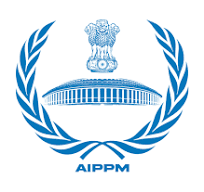Committee: All India Political Parties Meet (AIPPM)
Authors: Narendra Modi, Chandrababu Naidu, Eknath Shinde, Amit Shah, Smriti Irani
Signatories: Narendra Modi, Chandrababu Naidu, Eknath Shinde, Amit Shah, Smriti Irani
Agenda: Religious Freedom with a special emphasis on Anti-Conversion Laws
Preambulatory Clauses
-
Noting with concern unlawful, coerced conversions especially involving scheduled castes and scheduled tribes;
-
Emphasising the limitations of Article 25 of the Indian Constitution;
-
Having reviewed the current procedures for interfaith marriages;
-
Acknowledging Article 44’s directive principle for a Uniform Civil Code to secure national integration;
-
Noting with approval BNS articles 197, 316, 330;
-
Acknowledging Article 14’s guarantee of equality before law which necessitates uniform application of marriage laws;
-
Concerned by Article 15’s prohibition of discrimination being potentially undermined by religion-based personal laws;
-
Referring to the Aadhaar Act 2016’s provisions for secure digital identity verification;
-
Referring to Information Technology Act 2000’s provisions for secure digital record-keeping;
-
Affirming the Directive Principles’ call for modernization of legal systems (Article 37);
Operative Clauses
-
Adopts an alternative bureaucratic method for the SMA (1954):
(a) An Aadhaar-based registration and checking will take place
(b) A unified database will be created which will contain the collective data of all the marriage acts
(c) Private information will only be available to authorities and not the public -
Calls for the nationwide implementation of UCC that mirrors the provisions of its counterpart passed in Uttarakhand
-
Acknowledges nationwide marriage and divorce uniformity (procedural) as mentioned in the reference bill stated in Operative Clause number:
(a) Cultural practices and/or laws including Shariat will not be considered
(b) Scheduled Caste/Tribe rights stated in the Constitution will be upheld -
Introduces a cool-down period of 3 years if an individual reconverts to his/her original faith within a year of the initial conversion, only delaying welfare benefits but not the bureaucratic conversion of religions
-
Calls upon the Finance and Electronics Ministries to improve pre-existing DBT systems in light of usage of false identities
-
Recommends the setup of an anonymous coercion reporting portal:
(a) Fake informants will be jailed for violation of BNS 197
(b) Data will be recorded, tracked, and displayed with the help of blockchain technology -
Puts forth the retention of caste-based benefits for 5 years after an individual belonging to an SC converts into another religion
-
Calls for a nationwide anti-conversion law:
(a) These laws are to mirror the provisions of the UP PCR (2021)
(b) Any clash of these laws with UCC will result in the triumph of UCC -
Supports the establishment of a team of senior Government officials in each district to look after the education of the people in their locality with respect to these anti-conversion laws
-
Encourages State Governments to diligently monitor and prioritise the digitisation and registrations related to these implementations

